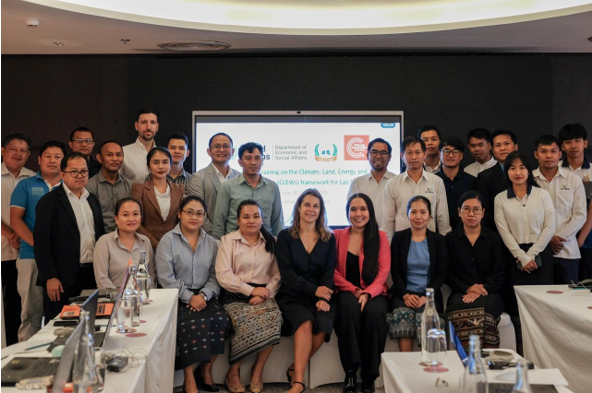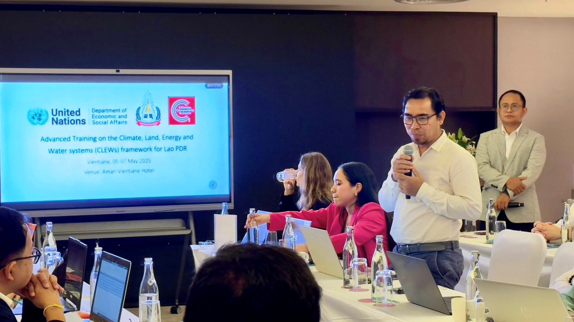From 5–7 May 2025, the United Nations Department of Economic and Social Affairs (UN DESA), in close cooperation with the KTH Royal Institute of Technology of Stockholm and national stakeholders, successfully held the second national workshop on the Climate, Land, Energy and Water systems (CLEWs) framework in Vientiane, Lao PDR. This workshop marked a significant milestone in the country’s efforts to build capacity for integrated, data-driven policy planning to advance sustainable development. The training provided an opportunity to present and discuss the CLEWs Laos model—an analytical tool tailored to the specific circumstances and priorities of Lao PDR. Participants engaged in detailed discussions on the model’s structure, data inputs, and key assumptions, offering valuable feedback and suggestions for further refinement. The updated model was formally shared with national stakeholders during the event as a basis for continued collaboration and input.

In addition to showcasing the model and gathering stakeholder feedback, participants engaged in a hands-on refresher session using the CLEWs user interface (MUIO), covering how to input data, run simulations, develop policy scenarios, and interpret results. The interactive format enabled deeper engagement and reinforced practical skill-building, with participants gaining confidence in applying the model to inform real-world decision-making. The workshop brought together more than 30 representatives from a wide range of government ministries, academic institutions, and technical agencies. Looking ahead, the workshop concluded with a shared commitment to apply the CLEWs Laos model to national planning processes. A roadmap for scenario analysis was developed, highlighting priority policy questions focused on smart agriculture and water use management for energy and agricultural needs in the context of climate-related precipitation vulnerabilities. This collaborative process aims to support coherent and evidence-based strategies for climate resilience, sustainable land use, water management, and energy access. UN DESA remains committed to working with government ministries, technical experts, and academic institutions in Lao PDR to deepen the application of integrated modelling tools like CLEWs and ensure their impact on policy formulation and implementation. Future collaboration will continue to focus on strengthening national capacities, refining scenario analysis, and promoting policy coherence across sectors. Together, these efforts represent a key step toward holistic, sustainable development planning that takes full account of the interconnected challenges and opportunities facing Lao PDR.

For More Information
Please see our newsletters.